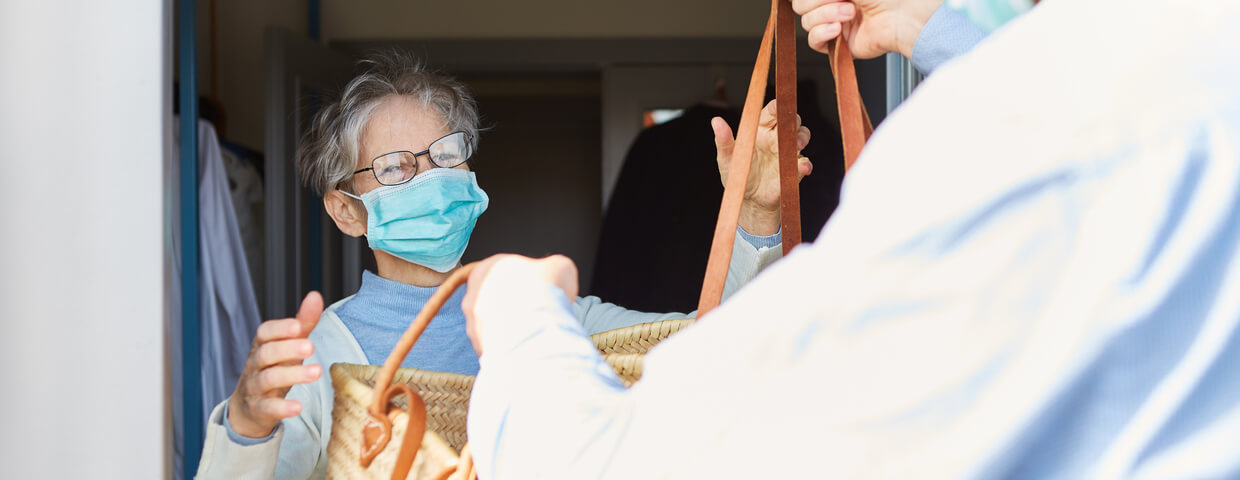The COVID-19 pandemic has placed many families in dangerous situations. Aside from health concerns, the loss of jobs and income puts many at risk. Issues of homelessness, loss of income, evictions, and hunger have grown in economic sectors that have never had to face these situations. Nonprofit organizations are struggling to keep up with the demand for services. If you can help, you may be wondering about the best ways to invest in your community.
Helping Nonprofits on the Front Lines
Nonprofit organizations are working to deliver services during the COVID-19 pandemic. They are doing so under challenging conditions, however. With the stay-at-home orders and loss of many jobs, nonprofits now face more need for services with fewer donations and volunteers. Nonprofits are changing the way that services are delivered to protect their clients and volunteers. Without the ability to host fundraising events, most nonprofits are losing out on their largest donation streams. As their resources dwindle and sources of support evaporate, they are striving to meet the growing needs. Food and essentials are needed by more people than ever, including their pets.
For instance, approximately 29 million American children rely on the National School Lunch Program for free or reduced breakfast and lunches. For many, this may be the only meal they have during the day. With parents out of work and children not in school, the risk of food insecurity is high. Senior citizens are another group that is at risk from COVID-19.
To make a real difference, consider financially supporting your local food bank or national organizations that provide support to individuals during the pandemic. You can also find a virtual volunteer position that allows you to help those in need without any contact health risks.
Helping Families & Children Who are Most Affected
Children are particularly affected by the pandemic. First, they are at risk of developing COVID-19. Even if they are not infected, COVID-19 has prevented many children from receiving routine medical care and treatments for existing conditions. Many parents have avoided getting necessary medical care for their children due to concerns about exposure to the infection.
While children may not fully understand what the pandemic is, they feel stress and anxiety due to the change in routine and the concerns of adults. Being isolated during social distancing and lack of a routine school schedule increases these anxieties. This lack of social interaction can inhibit some children and lower their educational progress.
Many nonprofits today are working hard to connect with children to provide social and educational opportunities. Investing your money and your time in these organizations can help support this vulnerable population. Sleep in Heavenly Peace (SHP) is an organization that builds beds for children in need. Consider participating in a build day to support kids in your area. It’s a real way to make a difference.
Helping Seniors Who are Most Vulnerable
The pandemic has made many seniors stay in isolation to prevent exposure to infection. This last of social contact has made many seniors food insecure. Many nonprofits are seeking to address this situation. There are many ways to help support seniors in your area. You can donate to support organizations that serve seniors, a great example is Meals on Wheels.
You can volunteer to go grocery shopping for seniors in your area. You can also participate in programs that reach out to seniors through phone calls to provide social opportunities. You may even develop lasting friendships through your volunteer activity. Providing exterior maintenance for a quarantined senior is another way to support someone in your community.
Supporting Local Restaurants and Stores
Restaurants and their workers have been hit hard by the pandemic. Consider supporting local businesses by buying food online or curbside and tipping whenever possible. Many apps, such as UberEATS, allow you to tip the driver who brings the food. Another way to support local restaurants is to purchase gift cards for friends and family members. These strategies help support those who are unable to work in the hospitality industry currently.
Helping Flatten the Curve
Without a vaccine, everyone is at risk of developing the COVID-19 infection. One way you can help “flatten the curve” is to follow the guidelines issued by public health authorities. Social distancing, frequent hand washing, and mask-wearing are recommended to keep you and others safe. These steps are humanitarian in an effort to reduce the spread of disease. Even during the pandemic, there are many novel ways to support the most vulnerable members of your community.
Support local nonprofits financially. Participate in volunteer activities that are virtual or allow for social distancing. Contribute your skills in new and unique ways. You may find that every time you help someone else, you’ll also grow.
Learn More About How You Can Help Your Community

